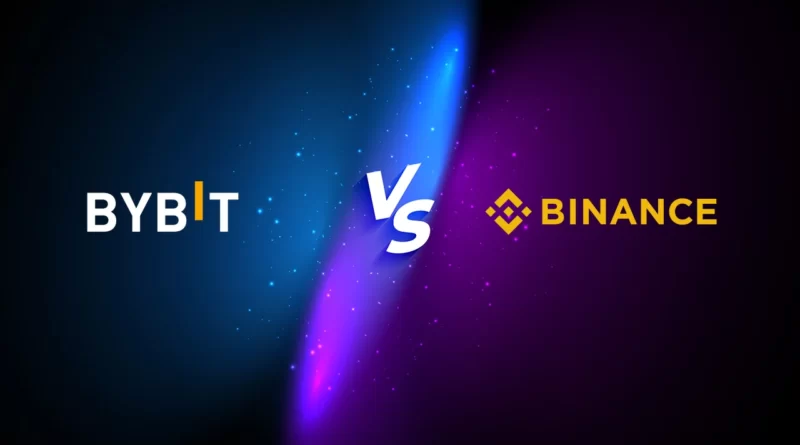Binance vs. Bybit: A Comparison of Two Leading Crypto Exchanges
Cryptocurrency exchanges play a pivotal role in the digital asset market, providing a platform for users to buy, sell, and trade cryptocurrencies. Binance and Bybit are two prominent exchanges that have gained significant popularity among crypto enthusiasts. In this article, we will compare Binance and Bybit, highlighting their advantages and disadvantages, to help you make an informed decision.
Binance: Advantages and Disadvantages
Advantages:
- Extensive Asset Variety: Binance offers one of the most extensive ranges of cryptocurrencies available for trading. With a wide selection of coins, including major cryptocurrencies and numerous altcoins, Binance allows users to diversify their portfolios effectively.
- High Liquidity: Binance boasts high trading volumes across various currency pairs, ensuring that users can execute trades quickly and efficiently. The high liquidity also minimizes price slippage, providing a superior trading experience.
- Reliability and Security: Binance has a solid reputation for being a reliable and secure platform. It employs robust security measures, including two-factor authentication (2FA), cold storage, and regular security audits to protect user funds.
- Binance Coin (BNB) Benefits: Binance operates its native token called Binance Coin (BNB), which offers numerous advantages to users. These include discounted trading fees, participation in token sales, and other exclusive features within the Binance ecosystem.
Disadvantages:
- Limited Leverage Options: Binance’s margin trading service provides leverage, but the options are relatively limited compared to dedicated margin trading platforms. This may be a drawback for traders seeking higher leverage ratios.
- Complex User Interface: Binance’s user interface can be overwhelming for beginners due to the multitude of trading options, tools, and features available. Navigating the platform and understanding its functionalities may require some time and effort.
- Limited Customer Support: At times, Binance’s customer support may be slow in responding to user queries, leading to potential frustrations for users seeking immediate assistance.
Bybit: Advantages and Disadvantages
Advantages:
- Advanced Trading Features: Bybit is primarily known for its advanced trading features, especially in the realm of derivatives trading. It offers perpetual futures contracts with leverage options, allowing users to amplify their trading positions for potential higher returns.
- Intuitive User Interface: Bybit’s user-friendly and intuitive interface is designed to cater to both novice and experienced traders. The platform provides a seamless trading experience, with easy-to-understand interfaces and comprehensive trading tools.
- High Leverage Options: Bybit stands out for its higher leverage options compared to many other exchanges. Users can access leverage ratios of up to 100x, enabling them to maximize potential profits from their trading strategies.
- Efficient Customer Support: Bybit is known for its responsive and effective customer support. The exchange offers multi-channel support, including live chat, email, and social media platforms, ensuring timely resolutions to user inquiries.
Disadvantages:
- Limited Coin Offerings: Unlike Binance, Bybit has a narrower selection of cryptocurrencies available for trading. While it covers major cryptos like Bitcoin and Ethereum, the options for altcoins may be more restricted on Bybit.
- Focus on Derivatives Trading: Bybit’s primary focus is on derivatives trading, particularly perpetual futures contracts. This may limit the scope for users looking for a wider range of traditional spot trading services.
- Restricted Geographical Availability: Bybit has certain geographical restrictions for its users, which may pose limitations depending on your country of residence.
Conclusion
Both Binance and Bybit offer unique advantages and disadvantages that cater to different needs in the cryptocurrency market. Binance excels in its extensive asset variety, high liquidity, and overall reliability. Bybit, on the other hand, stands out for its advanced trading features, higher leverage options, and intuitive user interface.
Ultimately, the choice between Binance and Bybit depends on your specific trading requirements, preferences, and goals. It’s essential to evaluate factors such as available coins, trading features, leverage options, customer support, and geographical restrictions before making a decision. Conducting thorough research and experimenting with both platforms using smaller investments can help determine which platform aligns best with your crypto trading needs.

